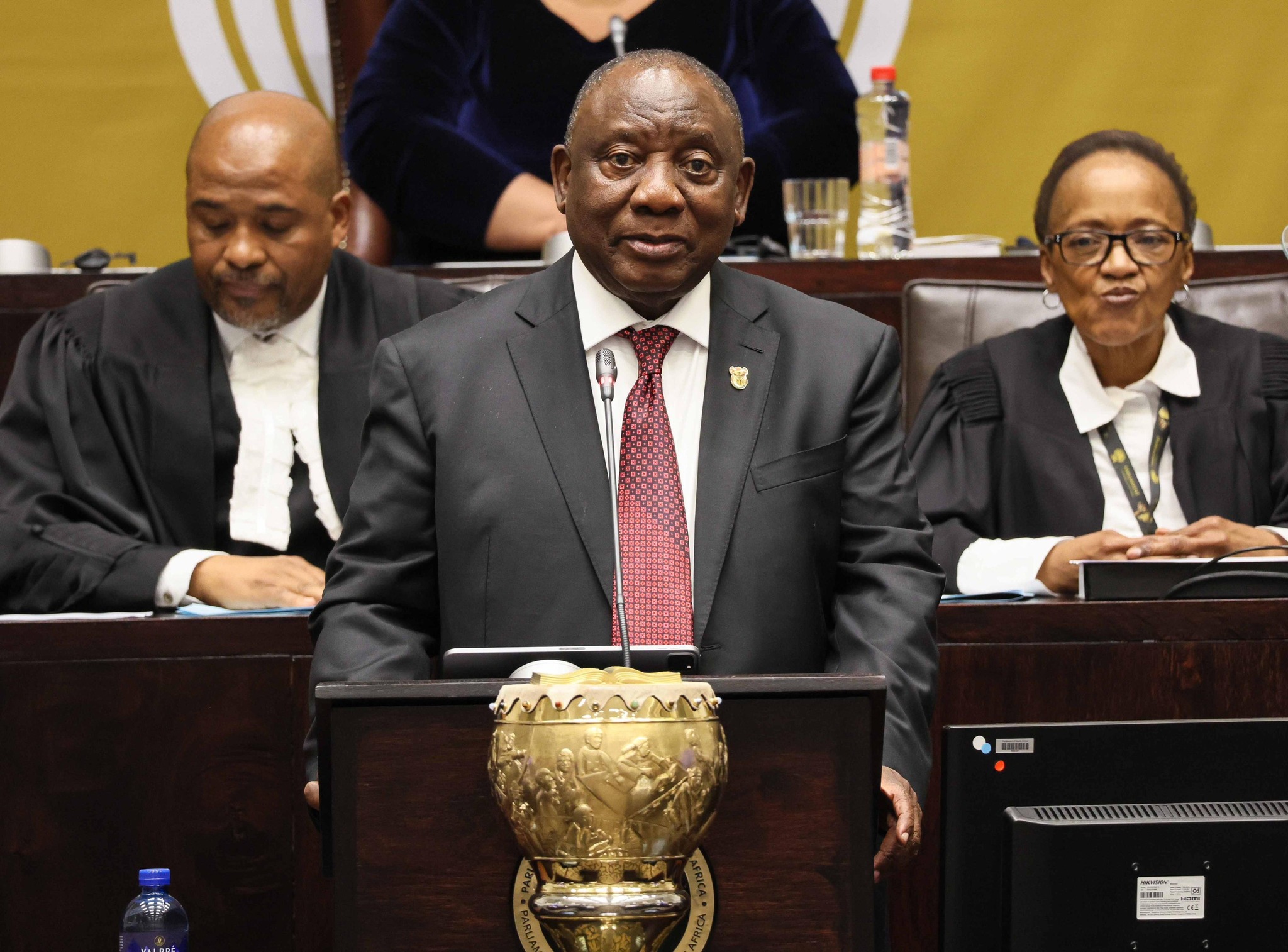Ramaphosa: Postbank Not Ready for Full Licence as Plans for State Bank Evolve
The President pointed to the Postbank Amendment Act, which was enacted to strengthen diversity in South Africa’s financial sector.

- Country:
- South Africa
President Cyril Ramaphosa has confirmed that Postbank is not yet in a position to be granted a commercial banking licence, despite ongoing efforts to transform it into a fully-fledged State-owned bank.
Postbank’s Licensing Challenges
Responding to parliamentary questions on Tuesday, the President emphasized that while financial inclusion remains a national priority, Postbank still faces structural and compliance hurdles before it can qualify for authorisation from the Prudential Authority of the South African Reserve Bank (SARB).
According to Ramaphosa, the institution has yet to fully meet regulatory conditions, particularly regarding card key management processes, governance standards, and prudential compliance. In addition, Postbank must stabilise its financial position before it can move forward.
“Postbank has not yet fully met the conditions for a banking licence, particularly around its card key management processes and compliance with prudential standards. Its immediate challenge is to strengthen its governance, ensure compliance, and stabilise its finances,” Ramaphosa told MPs.
Government’s Commitment to Financial Inclusion
Despite these challenges, government remains committed to supporting Postbank’s transformation, given its potential role in broadening access to banking for underserved communities, small businesses, and youth- and women-owned enterprises.
Ramaphosa highlighted that enabling affordable banking services would help stimulate local economies by unlocking entrepreneurship, supporting job creation, and improving household resilience.
“Financial inclusion empowers youth- and women-owned enterprises, narrows inequality, and builds resilience in households and communities,” he said.
Postbank Amendment Act and Developmental Role
The President pointed to the Postbank Amendment Act, which was enacted to strengthen diversity in South Africa’s financial sector. The Act positions Postbank as a developmental State-owned commercial bank, with a mandate to provide affordable financial services to communities neglected by traditional commercial banks.
South Africa’s financial sector is highly competitive, with large commercial banks, development finance institutions, co-operative banks, and new digital entrants all offering services. However, Ramaphosa argued that Postbank’s role is unique in its focus on inclusivity and development.
Capitalisation and Next Steps
Addressing concerns about funding, Ramaphosa clarified that capitalisation would only be considered after Postbank secures authorisation to establish a bank. Once that milestone is achieved, Postbank would have 12 months to raise the necessary capital to be officially registered as a bank.
Responsibility for developing and submitting the business case lies with Postbank’s board, which must present it to government through the Minister of Communications and Digital Technologies.
“These steps are essential to ensure that Postbank obtains its banking licence and is able to fulfil the vital mandate that it bears to promote financial inclusion for all,” Ramaphosa explained.
Possibility of a Merger with African Bank
In answering supplementary questions, the President indicated that government is also exploring the possibility of bringing together Postbank and African Bank as part of the broader state bank strategy.
“There is a general agreement that we need a state bank. The key question is how we move forward to put a bank together, and how we put all key elements together — whether it resides in Postbank or whether African Bank could be part of it,” Ramaphosa said.
He cautioned, however, that African Bank has other shareholders outside of government, meaning any merger would require careful alignment of interests.
“All those entities need to be synchronised to create a state bank,” he added.
Broader Policy Debate
The debate over Postbank and a possible state bank is part of a longstanding ANC policy resolution to establish a State-owned commercial bank to drive development, reduce inequality, and extend services to South Africa’s estimated 11 million unbanked or underbanked citizens.
Critics argue that creating a state bank could risk public funds if mismanaged, while proponents say it would correct structural imbalances in the financial sector and empower marginalised communities.
For now, Postbank remains under close scrutiny as it works to fix its internal systems, meet prudential standards, and prepare a credible business case. Its ability to cross these hurdles will determine whether South Africa’s dream of a fully-fledged State-owned developmental bank becomes a reality.










